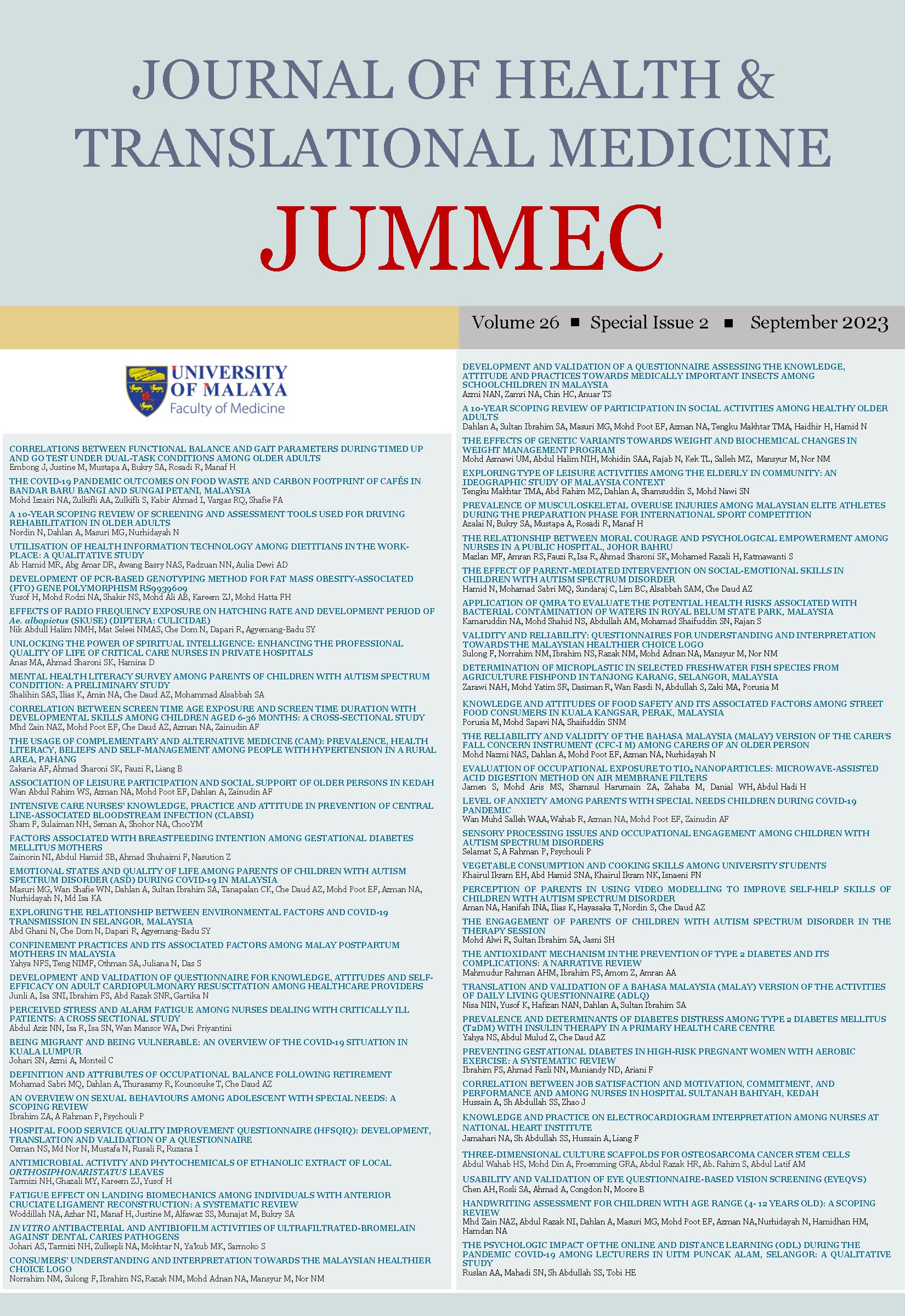THE EFFECT OF PARENT-MEDIATED INTERVENTION ON SOCIAL-EMOTIONAL SKILLS IN CHILDREN WITH AUTISM SPECTRUM DISORDER
Received 2023-07-07; Accepted 2023-09-22; Published 2023-09-23
DOI:
https://doi.org/10.22452/jummec.sp2023no2.33Keywords:
Autism Spectrum Disorder, Occupational Therapy, Relationship-based DIR, Parent-Mediated InterventionAbstract
Parent-Mediated Intervention (PMI) is a promising approach to improving children’s social-emotional skills with Autism Spectrum Disorder (ASD). However, its implementation in Malaysia is still in its infancy. This study aimed to investigate the effectiveness of PMI in improving social-emotional skills in children with ASD using a quasiexperimental pre-post design. A total of 30 participants aged between 2.5 and 7 years diagnosed with ASD were recruited from Putrajaya and Sarawak Heart Centre. PMI was delivered bimonthly for the first three months and once monthly for the next three months along with a small parent support group based on Greenspan and Wieder’s Developmental, Individual differences, and Relationship-based (DIR) theoretical framework. The Functional Emotional
Assessment Scale (FEAS) was the primary outcome measure. Results showed a statistically significant mean difference with a large effect size in functional emotion (F (1.613, 46.767) = 80.483, p < 0.001), indicating that PMI improved the social-emotional skills of children with ASD. These findings highlight the potential benefits of parent partnership within occupational therapy and suggest a trend towards top-down approaches in promoting positive outcomes in children with ASD in Malaysia. This is a pilot study before a larger scale and controlled trial is undertaken in Malaysia. Overall, the results emphasise the importance of implementing evidence-based interventions, such as PMI, to improve the social-emotional skills of children with ASD.
Downloads
Downloads
Published
Issue
Section
License
All authors agree that the article, if editorially accepted for publication, shall be licensed under the Creative Commons Attribution License 4.0 to allow others to freely access, copy and use research provided the author is correctly attributed, unless otherwise stated. All articles are available online without charge or other barriers to access. However, anyone wishing to reproduce large quantities of an article (250+) should inform the publisher. Any opinion expressed in the articles are those of the authors and do not reflect that of the University of Malaya, 50603 Kuala Lumpur, Malaysia.


